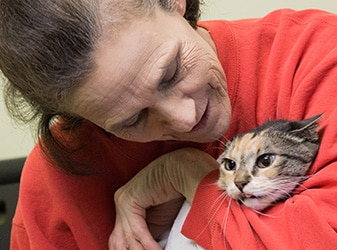Another example is the cat that eats but regularly vomits food back up.
Cat bladder stones euthanasia.
If the cat has bladder stones a stone or group of stones will be seen in the urinary bladder or other parts of the urinary system such as the kidney ureter or urethra.
Food is essential to life.
Which not only causes partial or complete obstruction in the tract but also may cause feline lower urinary tract disease and intractable difficult to cure bacterial infection calcium oxalate stones are the primary type of bladder stones particularly in cats.
X research source the merck merial manual for pet health i urinary stones uroliths calcili i p.
524 2007 isbn 978 0 911910 99 5.
Bladder stones are rock like formations of minerals that develop in the urinary bladder.
They can remain small in size or grow to be several millimeters in diameter and may rub against the bladder walls causing inflammation.
These urinary tract problems account for 50 to 70 of all cases while bladder stones and urinary mucus crystal plugs account for 40 and bladder infections for 2 to 3.
If the cat has pain dental arthritic or abdominal are the most common in older pets then it may inhibit her from eating because it hurts to get up and do so.
The most common reason for feline euthanasia is urinary problems.
In males small stones.
Consider your cat s weight and ability to eat.
The surgery would cost just over 1 000 and i truly cannot afford this.
My cat brandy has recently been diagnosed with bladder stones.
Urolithiasis bladder stones with bladder stones these are most commonly removed from the bladder initially by surgery.
The minerals may be of different types and it is important to detect the composition of the stones so as to find the best course of treatment.
The bladder stones or urinary calculi may form due to a concentration of chemicals and minerals in the cat s urine.
Bladder stones are rock like deposits of minerals crystals and organic material that are found in a cat s bladder.
Urethral obstruction can occur due to inflammation stones or crystals.
The most common signs of bladder stones in the cat are blood in the urine and straining to urinate.
Stones which are found in the bladder are more commonly found in the lower urinary tract.
All stones form because of disease or inflammation in the bladder.
Bladder stones in cats.
In this case your cat will not be able to pass any urine or may only dribble small amounts when he.
Large stones may act almost like a valve causing an on off or partial obstruction at the neck of the bladder.
Bladder stones can also irritate the bladder and urethra and cause urethral obstruction.

